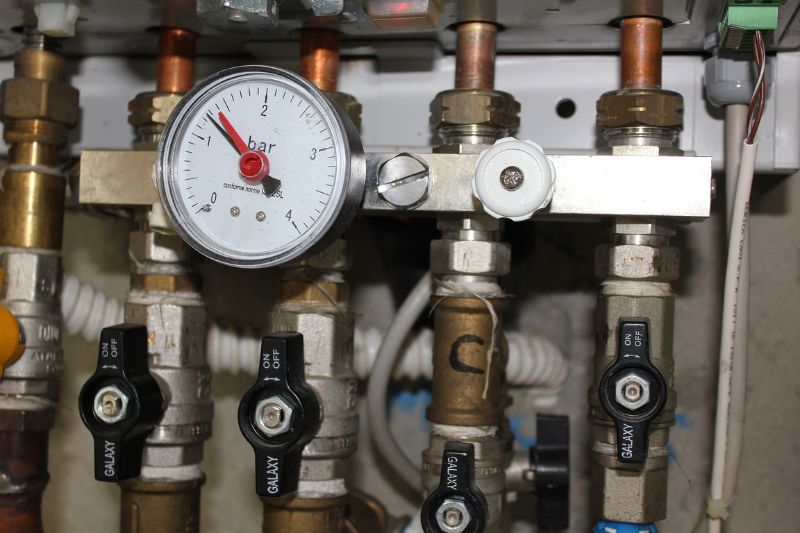Helpful Guide For Buying A Water Heater

Even though you may not give your hot water heater much thought on a daily basis, you will definitely notice if it is malfunctioning. You can depend on your water heater to keep your water at a pleasant temperature for tasks such as taking showers or washing dishes.
Not to mention that it may have a big effect on your household spending. In actuality, a home’s yearly energy bills might be as high as 20% when it comes to heating hot water. A water heater typically lasts between 8 and 12 years. Consider the elements we’ll cover in this article if the existing heater is past its prime or if you’re installing or updating a bathroom.
Think About Capacity
A water heater’s typical capacity is 40, 50, or 55 gallons. The size you select will be based on the number of occupants in your home as well as your maximum water use. If you need more details, the helpful Alberta water heater buyers guide provides in-depth information for your water heater. A four-person household, for example, may use up to 100 gallons of heated water every day taking several showers, running the dishwasher, and doing a few loads of laundry. Such a home does not, however, need a 100-gallon storage tank.
A new water heating system won’t always fit where your old one did. Some more recent models could be larger and/or taller than your previous water heater due to better insulation and other efficiency enhancements.
Which Water Heater Is Better: A Tank or a Tankless One?
Next, choose between a water heater with a storage tank and one that rapidly warms the water. There is often a tank for electric, gas, and solar water heaters. Although stainless steel tanks are more costly than mild steel tanks, they often last longer and need less maintenance. The finest water heaters are more expensive and use copper tanks.
Water heaters with instantaneous or continuous flow only provide you with the water you need at the time you want it. They are not, however, completely instantaneous; it may take a few moments before hot water begins to flow from the faucet. There are gas and electric variants of instantaneous water heaters. They operate more cheaply than storage systems because there are no heat losses.
Water Heater Types
There are many options depending on how much hot water you consume and whether you’re heating the water using gas or electricity. Certain variants are said to reduce energy expenses by up to 50% compared to conventional storage technologies. Yet, their higher upfront expenses might result in a lengthier payback period.
On-Demand Tankless Water Heater
Tankless water heaters utilize heating coils to heat the water as you need it, as opposed to storing it. They provide a smaller supply of hot water per minute—about 3.5 gallons, depending on intake water temperatures—than a storage tank, but are more energy-efficient. A large proportion of users prefer tankless water heaters because they have low running costs. Next, choose between a water heater with a storage tank and one that rapidly warms the water. There is often a tank for electric, gas, and solar water heaters. Although stainless steel tanks are more costly than mild steel tanks, they often last longer and need less maintenance. The finest water heaters are more expensive and use copper tanks.
Storage Tank Water Heater
The most prevalent kind of water heater is one with storage tanks. These, as the name implies, are made up of an insulated tank where warm water is kept until it is required and then released via a pipe on top of the water heater. Moreover, there is a temperature and pressure relief valve that activates if either rises beyond a certain threshold.
While you should be aware that gas models cost more at the time of purchase, natural-gas water heaters usually utilize less energy and are less expensive to operate (by around 50%) than electric water heaters.
Water Heater with a Heat Pump
They do this by transferring heat from the air to the water. Compared to conventional electric water heaters, they use roughly 60% less energy. While they are more expensive than electric-only ones, they are also easier to install and have a quicker payback period. Nevertheless, they need an environment that is maintained between 40° to 90° F since they don’t function well in very cold environments.

Solar Water Heater
The heat from the sun is captured by a roof-mounted solar cell, which then converts it to an antifreeze-like liquid in a closed-loop system that travels to the water tank. The greatest provide exceptional summer savings, making them desirable in warm, sunny areas. Yet, savings diminish on chilly, overcast days. The majority of models include a backup mechanism that activates when necessary.
Condensing Water Heater
If you use gas for heating and want a machine with a capacity of more than 55 gallons, condensing water heaters are an alternative. In contrast to typical water heaters, these versions collect exhaust gasses that would otherwise escape via the flue, saving energy. At the unit’s base, where arriving cold water may absorb the majority of the heat, these gasses are forced via a coil.
Is It Power Effective?
We’ve previously discussed how crucial it is to pick the right sort of water heater, but there are a few other factors to consider in order to determine if your new water heater will be as economical and energy-efficient as possible. An energy-star sign is the first thing you should seek since it is a universally recognized symbol. A simple method to ensure you obtain a water heater that will conserve energy while also providing dependable and high-quality performance is to get one that is energy-star certified.
Choosing the right water heater is very important because it affects your daily life and the whole household. By considering these factors, you can make a decision that matches your preferences and budget. So take time and choose a water heater that answers all your wishes and needs. We hope this article was helpful.











Leave a Reply